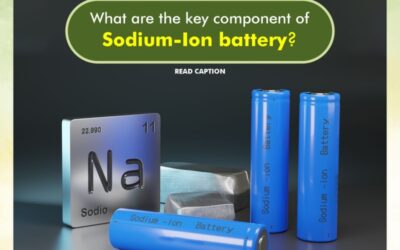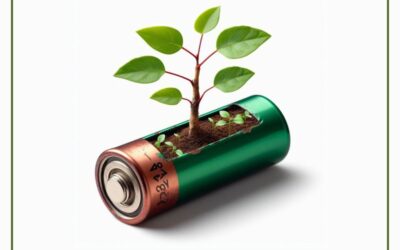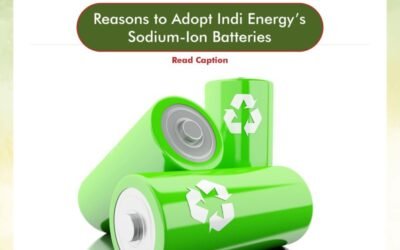
Indi Energy, an energy storage start-up based out of IIT-Roorkee, is delighted to bring our readers a brand-new series titled “Sodium ion Batteries Technology Updates.”
Indi Energy, India’s foremost innovator in the energy sector, is poised to introduce our sodium-ion batteries in the coming few months. With the global shift towards renewable energy sources gaining momentum day by day, our breakthrough technology will revolutionize energy storage. In the meantime, we have decided to introduce “Sodium ion Batteries Technology Updates,” a series where we will share the recent happenings and information related to battery technology, focusing not only on sodium-ion batteries but also on other contemporaries that exist in the market.
These posts are not intended to follow a general reading flow; instead, we will focus on quite a few points, an amalgamation of information in bite-sized format. Let’s get started, shall we?
Exploring Hard Carbon for Sodium Ion Batteries
Did you know that more than 12 million tonnes of automotive shredded material, also known as ASR, are extracted from vehicles that have reached their end-of-life stage? Research is already underway at UNSW Research Sydney, where they are aiming to utilize these materials to produce hard carbon anodes. If successful, this will be a huge step toward sustainability.
Even though graphite can be used as an anode material in sodium-ion batteries, it does have quite a few limitations, which is why the exploration of alternative carbonaceous materials and hard carbons has gained more prominence in recent times, particularly due to their notable attributes such as high thermal stability, affordability, and widespread availability.
Meanwhile, Indi Energy, on the other hand, has developed our very own high-quality hard carbon known as Bio-Black, which has been tested to be one of the best materials for manufacturing sodium-ion battery anodes. At present, we are focused on bio- and agri-waste as the sources of our hard carbon, but as the research moves forward, our vision is expanding towards endless possibilities.
Sodium-ion batteries for offshore energy storage
Before we jump into the several advantages of sodium-ion batteries for offshore energy storage, let’s first understand what offshore energy storage is. Offshore energy storage is the practice of storing excess energy generated from renewable sources, such as wind or solar power, in offshore facilities. These facilities store energy in various forms and release it when required to stabilize the electrical grid or supply power during periods of high demand. This process comes in handy to reduce land use and offers the potential to store large amounts of energy near coastal areas where electricity demand is often high.

Now let’s get down to the advantages sodium-ion batteries offer for offshore energy storage. First and foremost, the USP of sodium-ion batteries is the abundance of raw materials, safety, and environmental benefits, reducing the reliance on scarce materials. Research is already underway to increase the energy density of sodium-ion batteries, which will make them highly suitable for space-constrained offshore installations. What’s even more astounding is that sodium-ion batteries can operate effectively across a wide temperature range, which is crucial for diverse environmental conditions. And of course, their long cycle life ensures reliability and cost-effectiveness, which means that they can be seamlessly integrated into existing offshore renewable energy infrastructure. Additionally, sodium-ion batteries will mitigate the risk of resource dependency, aligning with sustainability goals, thus proving to be a promising option for offshore energy storage solutions.
Striking the Balance: Rechargeable vs. Disposable
The world is becoming increasingly conscious of sustainability, which means that the future of batteries has to undergo a significant transformation. While disposable batteries have been a convenient power source, rechargeable batteries, such as Indi Energy’s home-grown sodium-ion batteries, are leading the charge toward an eco-friendly future.

However, we do have to keep in mind that the complete replacement of disposable batteries is not guaranteed. Rechargeable batteries, such as sodium-ion batteries, offer several benefits, such as reduced waste, cost-effectiveness in the long run, and lower environmental impact. With recent advancements in battery technology, rechargeable batteries have become even more efficient and accessible for a wide range of applications.
However, disposable batteries will still have their place intact in specific scenarios, namely emergency devices. Their convenience in small-scale applications cannot be undermined, even when we at Indi Energy have successfully prototyped a toy battery with sodium-ion technology. Striking a balance between convenience and sustainability is crucial. But make no mistake, a future without disposable batteries is highly dependent on continued innovation, consumer preferences, and environmental consciousness.
Regardless, we at Indi Energy collectively believe that sodium-ion batteries are at the forefront of the green energy revolution, offering a sustainable alternative for a brighter and greener tomorrow. We hope our Sodium-ion Battery Tech Updates series has given you new insights into the world of batteries. We will be back soon; in the meantime, check out our LinkedIn and Facebook pages for updates. If you have any questions about our revolutionary battery technology, then fill out the form and we will get back to you as soon as possible.






